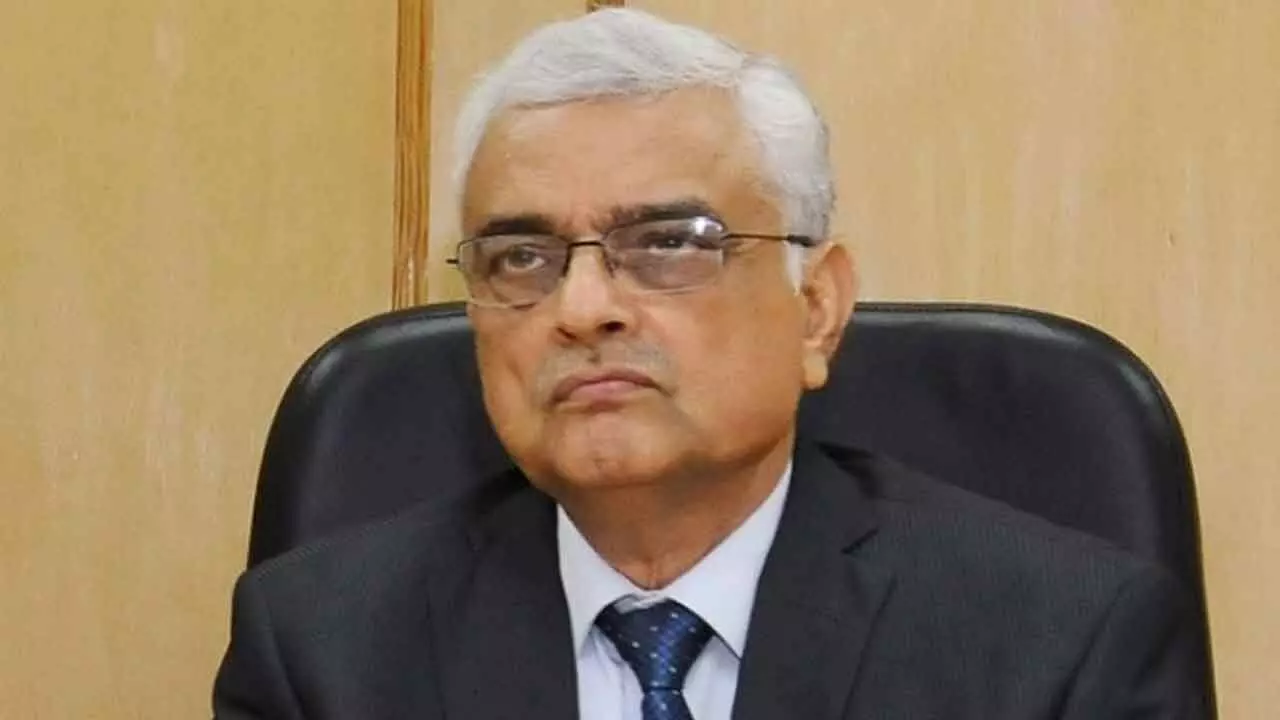ECI Competent Enough To Conduct Simultaneous Elections: Ex-CEC Rawat
The first step is to formulate the Bill and bringing it to the floor of Parliament
Former Chief Election Commissioner (CEC) Om Prakash Rawat

Rawat asserted that the Election Commission is capable of conducting such an exercise but noted that electronic voting machines (EVMs) and voter verifiable paper audit trails (VVPATs) would need to be supplemented
In a threadbare discussion on the concept of ‘One Nation, One Election’ (ONOE) in Bhopal recently, former Chief Election Commissioner (CEC) OP Rawat expressed full confidence that the Election Commission of India (ECI) was capable of conducting simultaneous elections. Of course, the move can only be ensured after amendments are made to the Constitution and the Representation of the People Act.
Meanwhile, the Union Cabinet has accepted the recommendations of the high-level committee on simultaneous elections under the chairmanship of former President Ram Nath Kovind.
Talking to Bizz Buzz, Rawat said, “The Election Commission has always backed the ‘One Nation, One Election’ move. It dates back to 1982 when the election commission had suggested to the then Union Government to consider implementation of the concept. After 1967, these elections went out of sync, causing lots of issues. Therefore, the ECI suggested that with certain amendments to the constitution, the government can implement it.”
All the eventualities like mid-term elections in any state or Lok Sabha were examined by the poll panel in 2015. As per the suggestion given by the commission in case of eventualities, election can be held for a dissolved house for a limited period so that it will in sync with the ONOE schedule, he said.
Rawat was invited by the Kovind-headed panel to give suggestions and inputs along with three other election commissioners, nearly 6-7 months back.
According to Rawat, “The first step should be to formulate the Bill and bring the same on the floor of Parliament. The committee has suggested for amending 17-18 laws in the constitution so as to make it a reality. Similarly, EC has suggested amendment to five articles for the purpose. “ In a separate discussion on the topic at the Madhya Pradesh Academy of Administration, while explaining about various aspects of the concept, Rawat asserted that the Election Commission is capable of conducting such an exercise but noted that electronic voting machines (EVMs) and voter verifiable paper audit trails (VVPATs) would need to be supplemented.
He said that the government had also asked for steps that would be a prerequisite for the simultaneous elections. At that time, the commission informed the government that it was indeed possible to conduct both elections together, provided the government undertook four tasks.
First, amendments to five articles of the Constitution would be essential, particularly concerning the terms of the assemblies and provisions for President's Rule. Additionally, changes to the Representation of the People Act and rules governing the introduction of no-confidence motions would be required. Specifically, a ‘constructive no-confidence motion’ needs to be instituted, which would not only express a lack of confidence in the current government but also propose a new government that the Assembly could trust, ensuring that the new government could continue for a full five-year term after the fall of the previous one.
Senior journalist and political analyst Sarman Nagele mentioned that the 18,626-page report prepared over 191 days indicated that 47 political parties shared their views, with 32 supporting simultaneous elections and 15 opposing it. In India, elections are held for 4,120 MLAs in state assemblies and 543 MPs in the Lok Sabha.
But it is seen that 43 per cent of the MPs have cases pending against them, as per their own affidavits.
Around 21558 responses were received on ‘Ek Desh Ek Chunav’ but they were in English and not in Hindi and other regional languages. This has been overlooked.
The report prepared by the Kovind-headed committee, after talking to all parties, experts and researchers on Ek Desh Ek Chunav is a good reference book. The government and the Election Commission of India should focus on curbing fake news, hate news and paid news.

